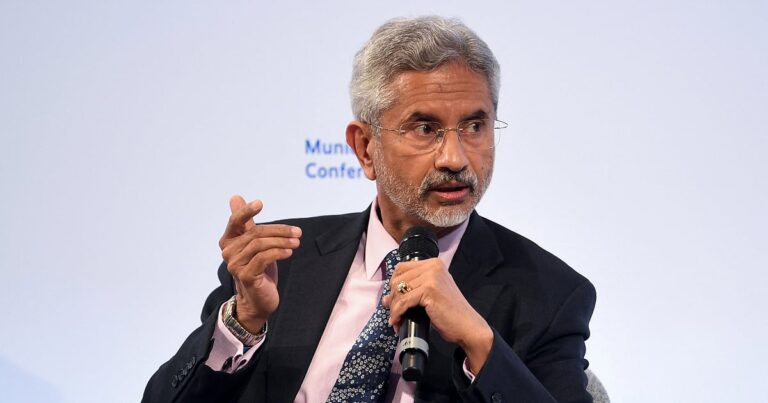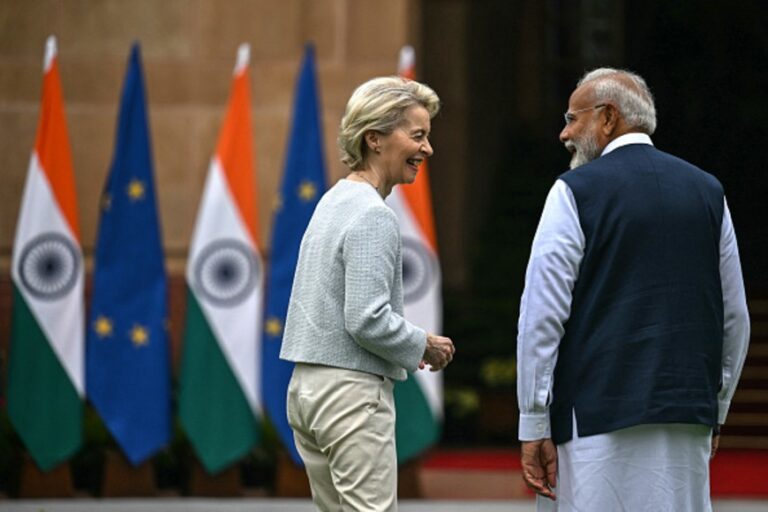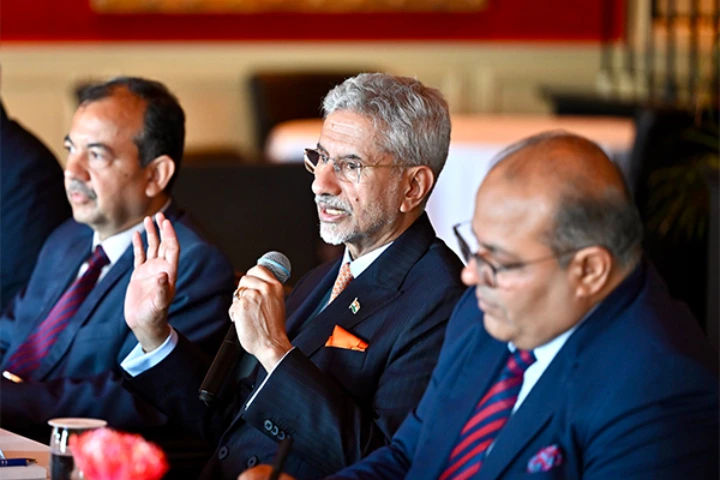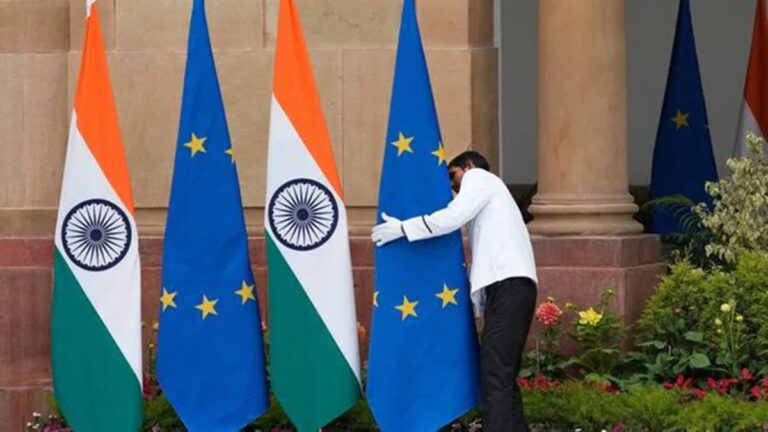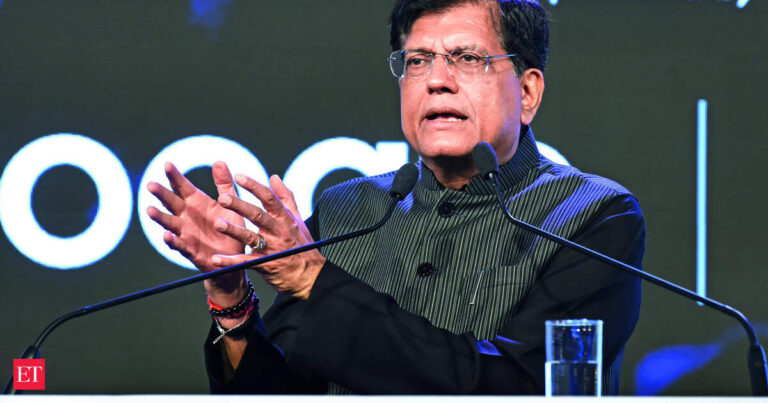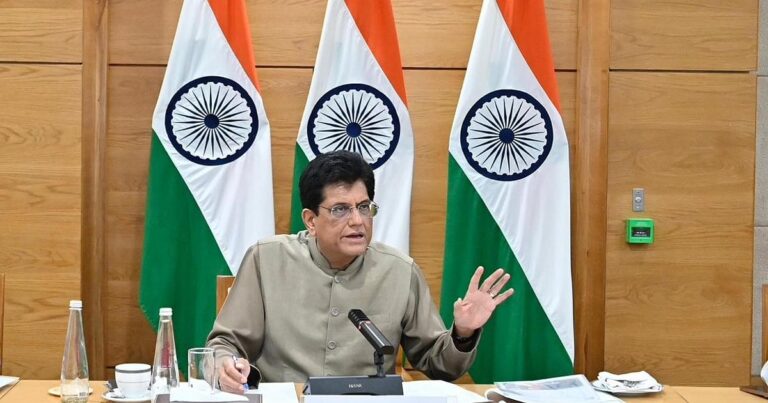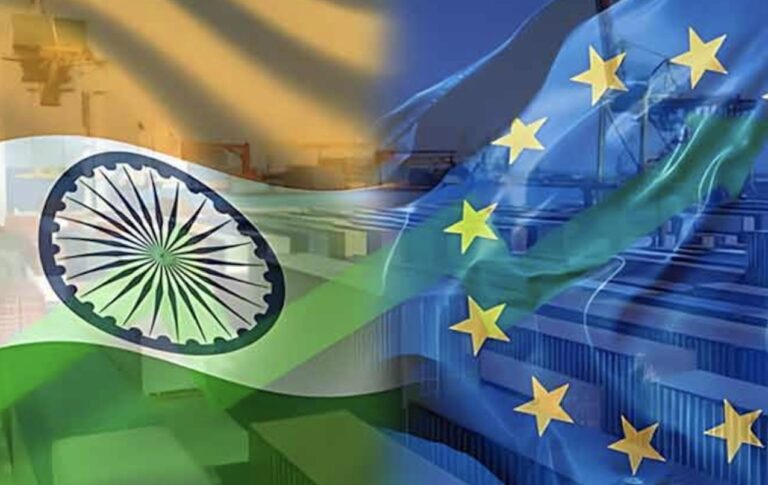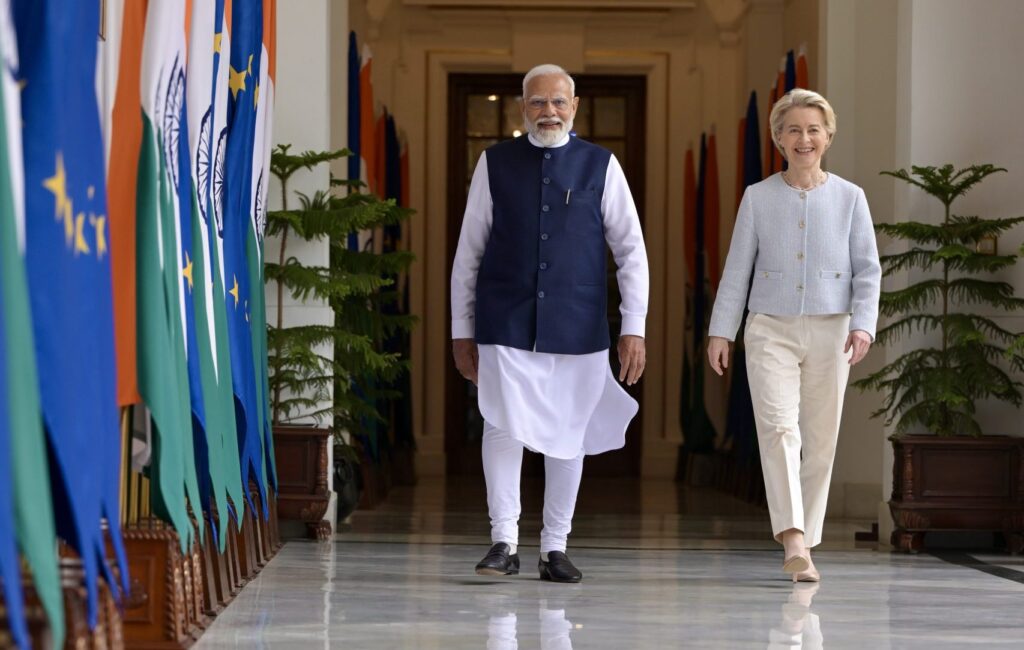
This year has seen a wave of high -level exchanges between India and the European Union, despite global turbulence. Trade experts argue that there has never been a better time for both parties to finally crystallize their partnership.
The president of the Ursula von der Leyen commission and the college of commissioners paid unprecedented visit In India in February, meeting Indian Prime Minister Narendra Modi and his government, and discussing how to raise their strategic partnership.
Major announcements were made during the visit, the most important being a free trade agreement (ALE). Both parties have agreed to accelerate negotiations so that an agreement is finalized This year. In a month following the visit, a series of ALE negotiations took place.
Describing him as one of the decisive partnerships of the century, the Indian ambassador to the EU Saurabh Kumar told Euractiv that the two parties work in priority fields such as defense and security, space, connectivity and critical technologies.
“We are working together to facilitate official ministerial meetings and highs in the coming months and on the new roadmap for the strategic partnership before the next India-EU summit,” he said.
Deepen economic ties
A Belgian economic mission Directed by Princess Astrid saw more than 325 delegates, including CEOs, business leaders, university representatives and senior officials, arriving in New Delhi in early March.
It was the first major diplomatic and economic awareness by the new Belgian government, and the princess’s second mission in India, aimed at stimulating bilateral links and exploring cooperation in the key sectors.
Prime Minister Modi and other best Indian ministers have met with members of the economic mission to reaffirm their commitment to strengthen links, to promote growth led by innovation and to stimulate economic resilience.
38 Memorandums of understanding (MOUS) have been signed, which, according to the Kumar ambassador, underline the common commitment of Belgium and India to deepen cooperation in trade, innovation and sustainable development.
Institutionalizing connections
Atlantic Council experts believe EU-India relations are at a historical moment.
India is considered a vital strategic partner in the world South, in particular in the light of increasing geopolitical uncertainty, the rise in tensions with China and the unpredictability of the United States. For the EU, India represents a stable and growing power with shared interest in trade, technology, connectivity and security.
From the point of view of India, these exchanges point out the opportunity to expand engagement with Europe at a time when New Delhi seeks to diversify partnerships beyond China and to hide against the volatility of its relationship with the United States.
Given that the EU is the best trading partner in India and that India is about to become the third world economy by 2030, the need for stronger bilateral links is becoming more and more obvious. The two parties recognize the need to institutionalize their links.
Timely opportunity
In a analysis Published by Carnegie Endowment, the former Indian ambassador to France Mohan Kumar argues that this is the moment for India and the EU to consolidate their strategic and economic relationship, not only for a mutual advantage, but to consolidate their roles as influential players in a complex and fragmented world order.
Historically, the partnership was hampered by the complex institutional structure of the EU and the preference of India to negotiate with the individual member states.
However, bilateral trade has increased considerably, and the promise of an ALE finalized in the year will further open the way to the relationship to reach its full potential.
The geopolitical backdrop makes it a timely opportunity, writes Kumar. With the Liberal International Order in Flux and the United States foreign policy under the transatlantic ties of Trump, the EU and India are about to deepen their partnership. If anything, the February visit was a significant signal of the importance of this relationship.
Although the parties do not necessarily see an eye on several questions – including commercial obstacles, regulatory friction, concerns of intellectual property and different opinions on human rights and world conflicts – there seems to be a real commitment and a conviction to advance the partnership this time.
If they can sail in their differences, the EU and India could become key partners to shape the future of world trade, technology and security.
If what they say is true, then where there is a will – or in this case, an interest – there must be a means.
(Edited by Brian Maguire | Euractiv’s prenocacy lab)
